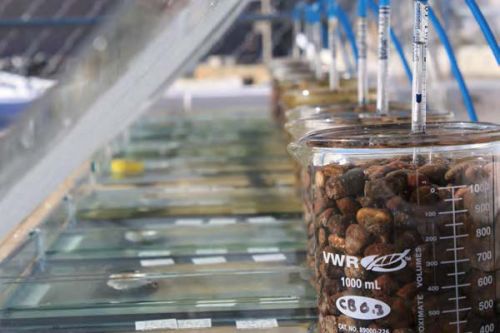OR&R Scientists Invited to Oil Toxicity Workshop, Halifax, Nova Scotia
DECEMBER 16, 2019 — Convened by the Multi-Party Research Initiative, a 5 year, $45.5 million effort under Fisheries and Oceans Canada, a two-day workshop was held on December 11 and 12 which brought together research and policy individuals from Canada and the U.S.
A prime objective is a common need to update and promote improvements in oil toxicity testing protocols to improve science-based advice for decision making in support of oil spill preparedness, response related activities, and damage assessment. OR&R’s Greg Baker and Michel Gielazyn participated remotely, along with Ed Wirth of NOAA’s National Center for Coastal Ocean Science, members of the Canadian government, oil industry, academics, and consultants.
Some recurring themes discussed included differences in exposure media preparation methods, targets for chemistry analysis (oils, dispersants, and shoreline cleaning agents), sub-lethal effects, the need for cost effective analytical characterization techniques, latent effects from brief exposures to oil, and pros and cons of standard versus site-specific bioassays. An aim is to refine toxicity test protocols currently in use to enable improved inter-comparison of data and optimization of their use in predictive models. The group plans to prepare a white paper as a means to solicit international funding to pursue these goals.
For additional information, please contact Greg.Baker@noaa.gov or Michel.Gielazyn@noaa.gov.
 An official website of the United States government.
An official website of the United States government.

